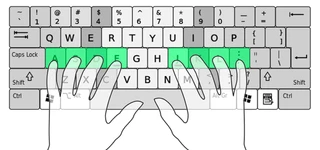Strategies for Successful Rental Property Management in 2025

In 2025, big changes globally are affecting how we handle properties. If you own properties, it’s a good time, but managing lots of them can be a headache. This guide on successful rental property management is here to help, making things easy for you.
Being a property manager is a difficult job that requires planning, marketing, and meeting objectives. But maintaining your assets requires more than just expertise. That’s where technology steps in, making things smoother. So learn some powerful tips to make handling your rentals a breeze.
For a successful rental property management in 2025, strategic approaches and technological integration can pave the way. The article covers key aspects from property acquisition and strategic marketing to optimized finances, building tenant connections, prioritizing maintenance, navigating documentation and legalities, embracing technology, and efficient turnovers.
With insights into the evolving real estate market, this article showcases the significance of advanced technology tools like Leadrat in ensuring smooth operations, optimal returns, and success.
What is Rental Property Management?
Rental Property Management is about outsourcing the day-to-day tasks of handling residential or commercial properties to experts. The goal is to strike a balance between profitability and tenant satisfaction.
In the U.S., property management rakes in a whopping $99 billion annually, with an average monthly rate of $1295. India’s real estate industry, once valued at $120 billion in 2017, is on track to hit nearly one trillion dollars by 2030.
To make the most of this, property managers juggle tasks like marketing for occupancy, rent collection, tax handling, lease management, and ensuring legal compliance.
This role demands a mix of people skills, marketing know-how, financial acumen, and a solid grasp of laws. Successful property managers also need to understand different property types, create buyer personas, and navigate the specifics of each listing.
Strategies for Successful Rental Property Management in 2025
Effective rental property management in 2025 requires a strategic approach such as from property acquisition to tenant retention, marketing, accounting, and handling turnover.
A good strategy can get you success in this dynamic market. Here are some of the essential steps for a successful rental property management venture in 2025;
Step 1: Property Acquisition and Setup
Before we jump into discussing strategies for successful property management, it’s important to understand that the first step is all about securing properties and getting the right licenses. This means actively looking for properties and connecting with landlords who need property management.
Putting yourself out there and making sure you have the proper business license are essential steps to kick things off.
First and foremost, you must publicize your property. Use ad campaigns, generate leads from your website, and take advantage of the most of social media. Use your social media accounts strategically to direct visitors to your property’s homepage.
Once you’ve got interested parties, having a good tool to manage them is a must. Leadrat’s sales and marketing CRM can be a big help here. Understand all aspects of your property by examining factors such as its location, facilities, size, and amenities. And don’t forget to set a competitive rent amount that matches your property’s features.
Step 2: Strategic Property Marketing
Enhancing your property listings requires strategic marketing efforts. Investing in quality property photography greatly improves your listings, drawing more potential tenants and enabling faster bookings.
To keep your properties in the limelight, actively participate in social networking sites and email promotional activities. To attract potential renters, showcase your property’s unique characteristics and facilities. Consider giving unique discounts to new renters, such as a reduced first month’s rent or eliminated pet costs.
Step 3: Optimized Finances
Simplify your accounting practices by implementing software that integrates all financial data, from rent collection to expense tracking. Establish easy online payment options for tenants for easy revenue collection. Offer assistance or services to support the preparation of property-related taxes.
Harness your property management software‘s reporting tools to craft clear, concise monthly financial reports. This not only eases your workload but also contributes to sound property management strategies which benefit both your team and property owners.
Step 4: Create Your Signature Owner Onboarding Experience
Begin with a uniform program and customize it to achieve perfection. Develop your ‘ideal owner profile’ with an emphasis on the significance of consistency for a stellar first impression which is a vital element in your property management strategies.
Participate in in-depth conversations with property owners to grasp their individual requirements, anticipations, and inclinations. Align this understanding with your ‘ideal owner profile.’ Serving as the first point of contact for potential property owners and typically addressing their questions, craft an extensive owner packet.
This packet should intricately outline your services, technological utilization, and your approach to managing their properties. Infuse personalization, ensuring it serves as a conversation starter rather than just a document.
Step 5: Right Rent Pricing and Leasing Expertise
To establish rent prices, employ a data-driven approach that ensures an optimal balance between profitability and competitiveness. Consider using AI and predictive analytics to precisely determine the optimal rental price as a component of your property management approaches.
Set your rent rates as a proportion of your home’s market worth—generally between 0.8% and 1.1% of the property’s value. Research the local market to understand the rental rates of similar properties and adjust your rates accordingly.
Research suggests that firms embracing digital lease processes witness a 25% improvement in efficiency.
Studies indicate that companies adopting digital lease processes experience a 25% increase in efficiency. Begin with an online, streamlined leasing process, incorporating digital applications, virtual tours, and self-showings to attract tenants.
Facilitate digital lease agreements, e-signatures, and online tenant screening for a seamless leasing experience.
Step 6: Build a Community, Beyond Properties
Create a feeling of community within your properties through event coordination, fostering transparent communication, and delivering exceptional service. Recognize that a robust community spirit significantly reduces vacancy rates.
Forge connections with local businesses and organizations to garner referrals and establish partnerships. Collaborate with universities, especially if you operate in student housing, or team up with real estate agents to reach a broader audience of potential tenants.
Step 7: Build Strong Tenant Connections
In such a thriving rental property market, the influx of tenants presents an opportunity. Securing tenants for your property is a significant achievement that reflects a positive trajectory.
To build a solid foundation with your tenants, prioritize effective communication, clear regulations, and a careful selection process. Enhance tenant satisfaction using tools like Leadrat’s property module, focusing on regular check-ins and loyalty incentives.
Treat your tenants well; this is fundamental for establishing positive relationships and improving your people skills to prevent misunderstandings. Be proactive in addressing their concerns and promptly resolving any issues. Unhappy tenants can complicate your job and even harm your reputation.
Maintain clear and regular communication with tenants. Ensure they are well-informed prior to entering the premises, offer convenient payment alternatives, and clearly delineate rules and regulations.
Consider the rental duration—short-term or long-term—affecting tenant rotation and cash flow. Tailor your tenant selection process accordingly by conducting thorough screenings to ensure a good match. Leadrat’s property module streamlines property listings and tenant information management, including photos and vital details. Once everything checks out, proceed to sign the lease.
Ensuring tenant happiness is crucial. Implement processes focusing on tenant satisfaction, such as regular check-ins and prompt resolution of maintenance issues. Keep communication lines open, engage with tenants actively, and consider offering loyalty incentives like rent discounts or upgrades for long-term tenants.
Administer surveys to understand the requirements and opinions of tenants. Happy tenants contribute to lower turnover rates and more stability for your property portfolio.
Step 8: Prioritize Maintenance and Upgrades
Know that tenant satisfaction involves prioritizing regular upkeep and maintenance. Ensure all facilities and amenities are in optimal working order before a tenant occupies your rental property, promptly addressing any issues. Consider the following;
- Maintain quality by promptly fixing leaky pipes and replacing broken furniture
- Prioritize safety through investments in smoke detectors, fire alarms, electrical circuit breakers, and fire extinguishers.
- Employ hired personnel, including plumbers, electricians, and maintenance workers, to assist tenants as needed
- Upon a tenant’s departure, seize the opportunity to upgrade and overhaul your property
- Install premium appliances or services, potentially justifying a rent increase for future tenants.
- Furthermore, consider investing in improving the living space, be it with a new paint job, decorative plants, or an appealing false ceiling, to notably enhance the atmosphere and elevate the overall living experience.
Step 9: Navigate Documentation and Finances
Financial aspects of property management can be challenging but with the right approach, it yields reasonable remuneration without undue stress.
Ensure transparent financial transactions by maintaining explicit lease agreements, specifying the exact rent amount and due dates for tenants.
- To alleviate the stress of financial planning and management, follow these steps;
- Establish a proper cash flow account to comprehend your income from rent and allocate funds for repairs and maintenance
- Familiarize yourself with property tax calculations to determine your obligations
- Record any eligible claims to maximize savings
- Consider hiring an accountant if needed, but maintain meticulous financial records to mitigate stress and uphold precision in your bank account numbers
Step 10: Legalities of Tenant Eviction
While we hope it never comes to this, there are instances where tenant eviction becomes necessary. Reasons for eviction might include;
- Inflicting harm or damage to the property
- Renting out the property without obtaining the landlord’s consent
- Erecting a new structure on the same land
- The property is essential for the landlord’s use
- Repeated complaints against the tenant
Step 11: Turn Over with Ease
Always execute turnovers with a final inspection to ensure your property is left in good condition. After the tenant departs and the final inspection has been done, the procedure for executing the bond refund and reimbursing any ultimate deductions for rent, utilities, or damage is efficiently carried out.
Employ digital inspections to promptly address repairs and revitalize the property for the subsequent tenant. The faster the property returns to the market, the better.
Step 12: Embrace Technological Solutions
As the demands of property management multiply, consider incorporating rental property management software to efficiently handle multiple properties simultaneously. This technology assists in;
- Automating rent collection
- Maintaining a platform for tenant complaints and concerns
- Listing currently vacant properties
- Managing leads from various sources and more
Recognizing the extensive workload for an individual, using an advanced CRM tool can provide invaluable support. With Leadrat, you can track the complete sales process in real-time with no potential customers being overlooked.
Conclusion
The intricacies of rental property management in 2025 demand a blend of strategic approaches and technological integration. From securing properties and developing tenant connections to strategic marketing, and embracing technology, each step contributes to a successful venture.
The integration of advanced technology emerges as a crucial element, with tools like Leadrat offering efficiency across various aspects. These strategies empower property managers to ensure smooth operations, optimal returns, and a positive trajectory in the dynamic real estate market of 2025.
The Techjockey content team is a passionate group of writers and editors dedicated to helping businesses make informed software buying decisions. We have a deep understanding of the Indian software market and the challenges that businesses face when choosing the right software for their needs. We are committed... Read more



























